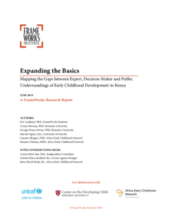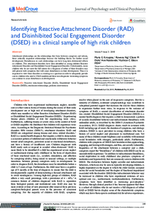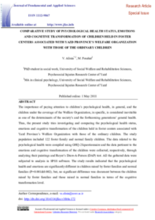Displaying 201 - 210 of 490
The objectives of this study were to examine the prevalence and type of trauma exposure, and investigate the relationship between prior trauma and serious illness among foster children at end of life.
The authors of this paper sought to explore the psychometric properties and validity of the Achenbach Youth Self-Report and Child Posttraumatic Stress Disorder Symptom Scale among orphans and vulnerable children (OVC) living in Lusaka, Zambia.
This paper identifies some of the key debates about the evidence from outcomes for children placed in foster care, the challenging issues in the design of the system, how it operates and what the outcomes for children look like.
In this article, the authors explore whether current relational health (connectedness) promotes positive outcomes for child welfare-involved youth while controlling for developmental risk (history of adverse, and lack of relationally positive, experiences).
This report considers a set of key overlaps and gaps in understanding of children’s early development and perception among experts, the Kenyan public, and people who work and make decisions in the early childhood development (ECD) sector in Kenya.
The Nurturing Care Framework provides an evidence-based road map for action and outlines how policies and services can support parents, families, other caregivers and communities in providing nurturing care for young children.
This paper describes the piloting of Care for Child Development through six health surveillance assistants (HSAs) in group and individual sessions with 60 caregivers and children <2 years and assessed recruitment, frequency, timings, and quality of intervention.
This descriptive study involved caregivers and their adopted children, under the age of 7 years old, referred by pediatricians to an outpatient clinic, which specializes in early mental health. The prevalence of toxic stress, measured as symptoms of Reactive Attachment Disorder (RAD) and Disinhibited Social Engagement Disorder (DSED), was explored using clinical data collected during initial assessment.
The present study tries investigating and comparing the psychological health status, emotions and cognitive transformation of the children held in foster centers associated with Yazd Province’s Welfare Organization with those of the ordinary children.
The Handbook of Adolescent Development Research and its Impact on Global Policy aims to fill critical evidence gaps to speed evolution of better policy-making specifically tuned to this dynamic life stage.




